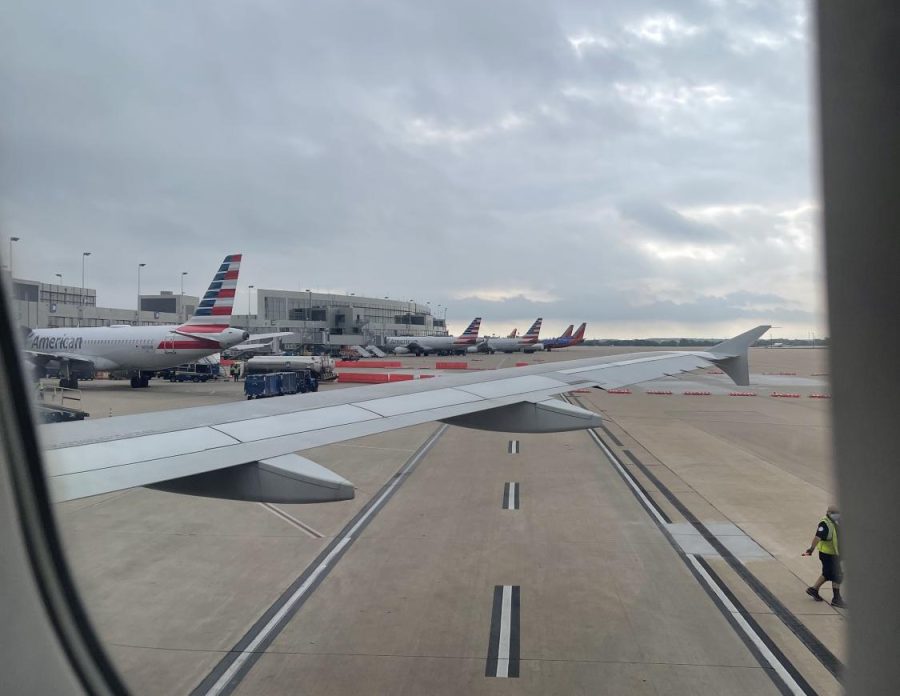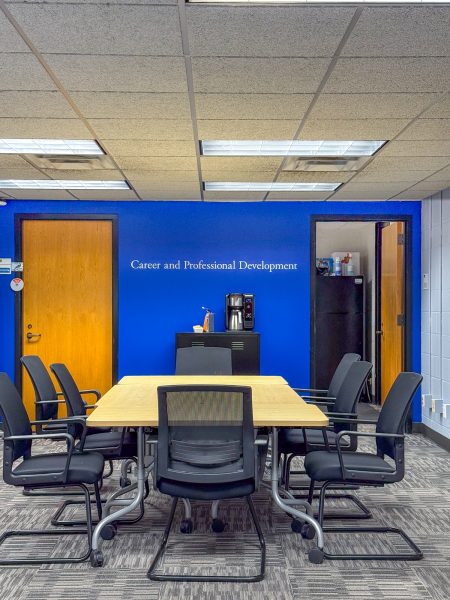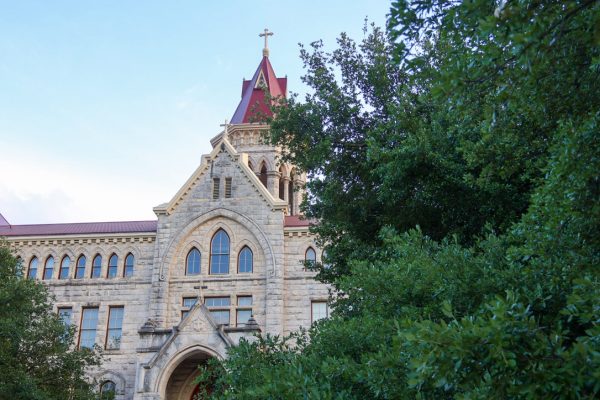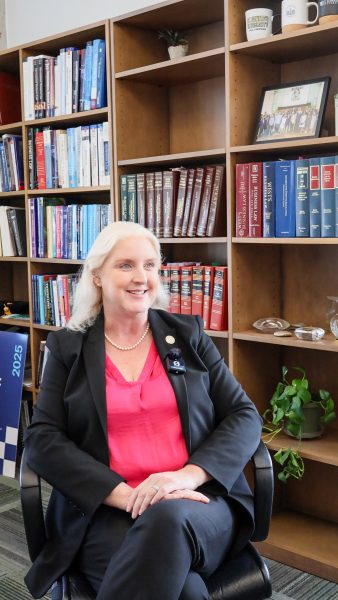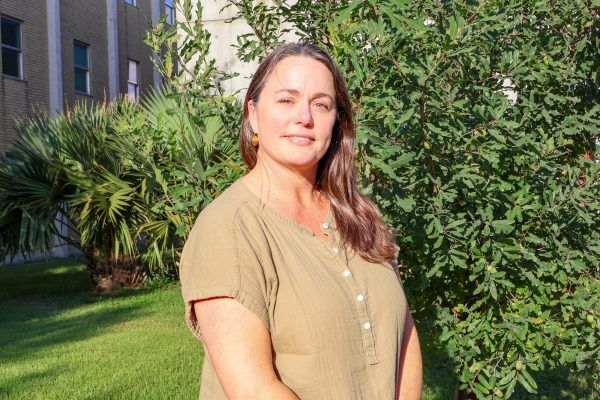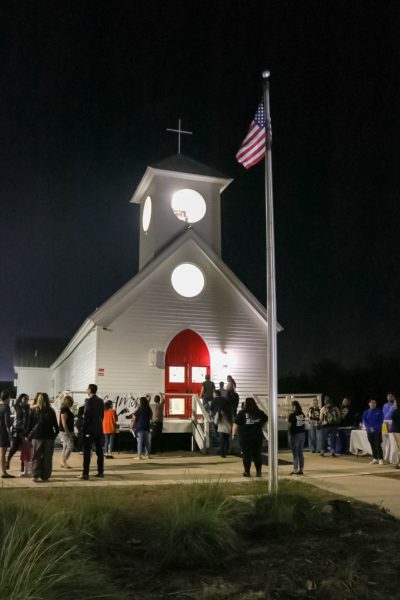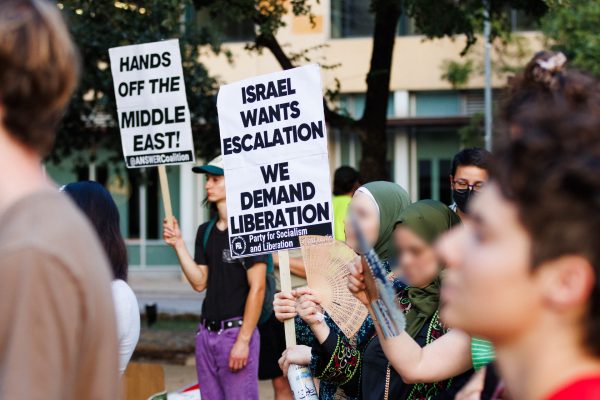East Austin neighbors express concerns over jet fuel facility for Austin-Bergstrom
The Austin-Bergstrom International Airport is planning for construction of a jet fuel facility that will be located west of U.S. 183, approximately 500 feet away from homes. The start date for construction has yet to be decided.
This spring, construction of a new jet fuel facility is expected to begin west of U.S. 183, in close proximity to homes and businesses in east Austin.
The proposed facility will serve the Austin-Bergstrom International Airport in order to accommodate the estimated 3% to 5% increase in fuel demand over the next five years. According to Sam Haynes, senior public information specialist for Austin-Bergstrom, the construction is estimated to take up to two years.
While the environmental impact report conducted in accordance with the National Environmental Policy (NEPA) and the Federal Aviation Administration (FAA) determined that the facility is safe to be constructed with minimal environmental impact, neighbors and activists have expressed concern over its construction, especially regarding the facility’s location.
In a letter addressed to Mayor Steve Adler, Mayor Pro Tem Natasha Harper-Madison and Austin City Council members, People Organized in Defense of Earth and her Resources (PODER) suggested relocating the facility from the proposed site. PODER is a group formed by east Austin activists that address environmental hazards.
“What was absent in the [Environmental Impact Statement] findings were the negative human impacts of communities of color that are already living adjacent to an airport that is continually expanding,” according to the letter by PODER director Susana Almanza and board chair Janie Rangel.
The location was selected from a number of proposed sites and was determined based on its environmental impact and long-term airport growth plans.
“During the masterplan process, you’re looking at the needs of the airport and its growth,” Shane Harbinson, deputy chief of planning and development in the Austin Department of Aviation, said in a meeting regarding the facility construction. “We’re trying to maximize the benefits of the airport, like using the highways to deliver fuel safely. The storage facility is designed to store Jet A fuel, which doesn’t create those emissions. It can be controlled and monitored with proper controls for safety for spills in this location, so it was the best fit for this facility.”
Austin City Council voted against a resolution to move the site that councilwoman Vanessa Fuentes, who represents District 2, proposed. On a city message board, Fuentes acknowledged the proximity of the facility to homes.
“An important aspect of this growth is to make sure it is equitable for all of the residents who reside in Austin,” Fuentes said. “At the current location, once the tanks are fully built out the proximity to homes in the adjacent neighborhood will be 488 feet away.”
A start date for construction is currently being determined, and planning for the jet fuel facility continues.
According to Haynes, the City of Austin began sending notices to property owners within 500 feet of the site during the construction permitting process in 2020. This includes owners in neighborhoods such as McCall Lane, where many residents have signed a petition against the facility’s construction, calling back to a similar situation with another tank farm in the past.
In 1948, a 52-acre industrial site became the home to a tank farm at Springdale Road and Airport Boulevard that housed over 10 million gallons of fuel above ground, owned by six different major oil companies. It wasn’t until 1991 that PODER, with the help of grassroots organization The East Austin Strategy Team (EAST), began to advocate for its closure after it caused health problems in the communities nearby. It took until 1993 for the tank farm to finally shut down.
“It is not a matter of if the tank farm will leak and lead to further pollution exposure for communities nearby, but a matter of when,” Alexia Leclercq, research analyst and organizer for PODER, said. “It is important to take into account cumulative impacts and the existing pollutants that this neighborhood is exposed to because it is located near the airport and highways.”
According to Leclercq, the decision to build the facility near homes is one of environmental injustice and racism.
“To rebuild another tank farm near a low-income Latino community would be a perpetuation of environmental racism,” Leclercq said. “Therefore, PODER is working alongside McCall Lane residents to ensure this does not happen.”

Hi y'all! My name is Elle. I am majoring in Communication with double minors in Spanish and Journalism. I have wanted to be a writer ever since I was a...


